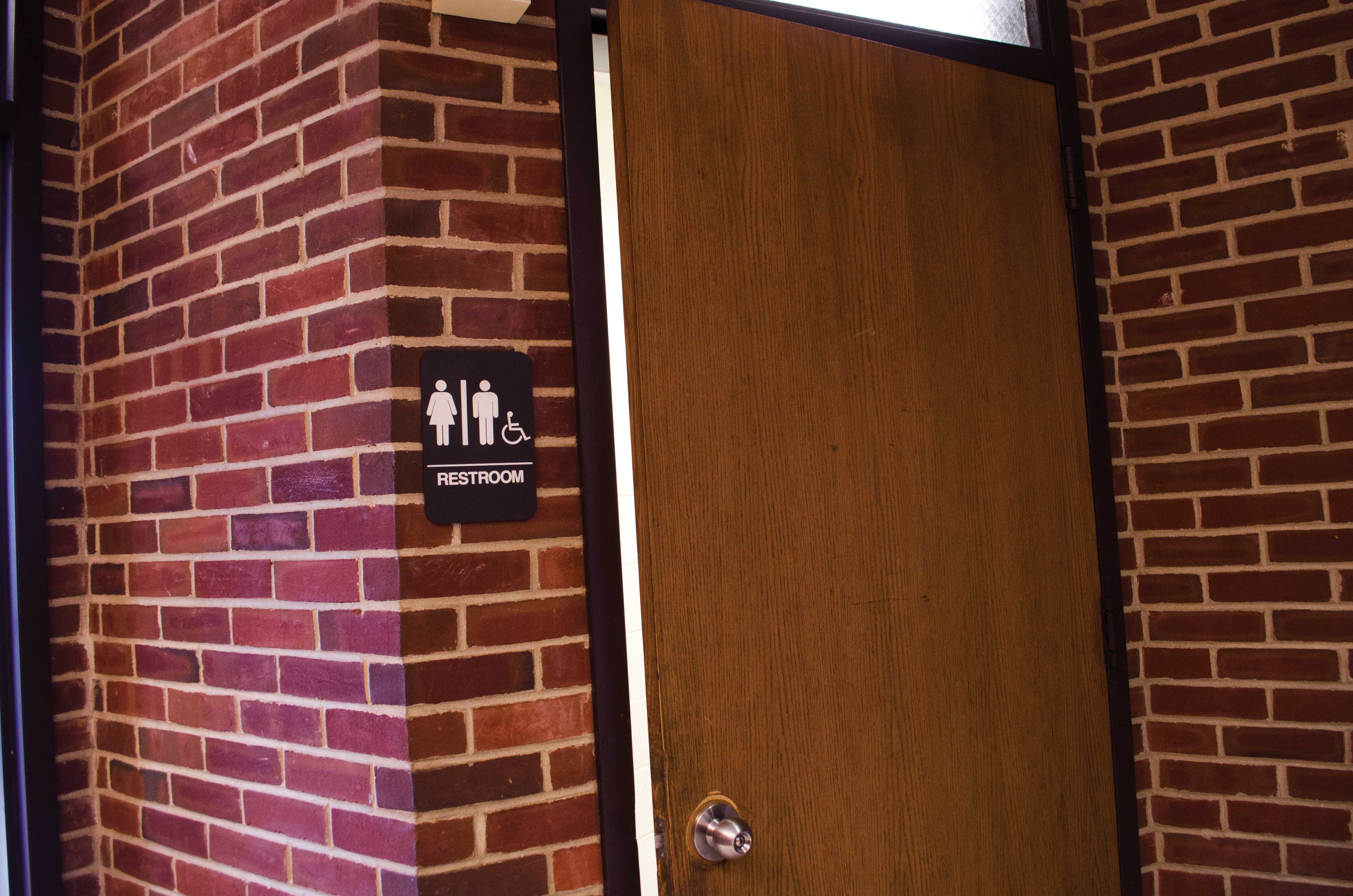Gender neutrality is a national issue that campuses face when planning accommodations to welcome all prospective students.
At the University of New Haven, “we need to think about being a university welcoming to all students,” said Rebecca Johnson, Associate Vice President of Student Affairs and Dean of Students. “It is a national issue and we need to respond to it.”
Amber Crow, president of UNH PRIDE, said that establishing gender neutral bathrooms on campus was a combined initiative that started with PRIDE and was pushed through by the Office of Residential Life and the Dean of Students’ Office. Crow explained that during a meeting of the advocacy committee of PRIDE it was said that in member Mel Vitullo’s opinion, UNH wasn’t totally gender neutral and did not cater to students who don’t identify with the “normal” genders (male and female).
“So when we decided to get the ball rolling on increasing gender neutrality on our campus, we approached our club’s adviser, Dean Baker, about it. He kind of took over from there and really pushed the initiative with Residential Life and Facilities and the many other wonderful offices who were a part of making this happen,” said Crow.
Johnson explained she brought the issue to the facilities committee so that the campus could become a more welcoming environment for the community and provide options for students that are accessible and safe.
The Facilities Department then conducted a survey of the bathrooms on campus in order to locate single, one-person bathrooms that can be utilized as gender neutral bathrooms. After evaluating the campus, a list of available unisex bathrooms at UNH was created and can be found on the Intercultural Relations website: http://www.newhaven.edu/student-life/CampusLife_StudentAffairs/intercultural_relations/safe-zone.
Some locations of these bathrooms are on the first floor of Kaplan, the first and second floor of Maxcy and on the thrid floor of the Marvin K. Peterson Library.
On May 1, Johnson sent out an email to the university community notifying them of the update, stating, “in an effort to better meet the needs of the University community, attached is a list of restroom facilities on campus that are gender neutral. This means that the facilities may be used by any member of the University community, regardless of gender identity/expression.”
To go along with the gender neutral bathroom initiative, Wanda Tyler, Director of the Office of Intercultural Relations, explained some of the content featured in the Safe Zone training that UNH, along with many other universities nationwide, provides to the campus community.
The mission statement of the UNH Safe Zone Program is to create a safe environment for anyone who is questioning their sexual orientation or wishes to celebrate differences in sexuality, sexual identity, and/or gender identity.
One aspect of the program deals with LGBT (standing for lesbian, gay, bisexual and transgender) issues and how faculty, staff and students can be allies for this community. The training allows participants opportunities for expanding their minds so they can be understanding of the experiences of others.
“For someone who identifies as transgender, decisions about their housing situation and which restroom to use can be challenging to make,” said Tyler.
Transgendered individuals feel, see and associate themselves as being one sex, while they may have been born a different one.
“When they look in the mirror they may physically be a woman, but have a personal, internal sense that they are male and see something like facial hair,” explained Tyler. “Those of us who are not part of the trans community need to be understanding of what it might be like to be in their shoes and understand the transition some may be undergoing.”
Tyler also explained a word that she was taught that has, in her opinion, cleared things up. “Cisgender is used to describe or label those that are not transgender,” said Tyler who went on to also clarify that “LGB” identifies sexual orientation, while the “T” identifies gender identity where the physical appearance may not match what one feels psychologically.
Mario Pierce, assistant director for housing and operations at the UNH, explained that the exact signage of the bathrooms has not been decided yet, but they are currently distinguished as “unisex” with a male/female figure on the sign. However, the decision has been made to include gender neutral bathrooms in not only the newest residence hall currently being built, but in all buildings from now on.
“We will have to take a look at what is governed by code [regarding sinage for the bathrooms],” said Pierce, “but yes, code now requires unisex (or gender neutral) bathrooms in facilities.”
According to Johnson, as the campus expands and facilities are renovated, the list of gender neutral restrooms on campus will be updated.
Since gender neutrality is a wide spread issue, Johnson also mentioned some other universities that are taking actions to address this issue. The examples she provided included New Mexico State University and Brown University, who have implemented either, or both, gender neutral bathrooms and housing.
Wesleyan University in Connecticut had a Genderless Restroom movement of their own, where bathroom signs that normally read “Men” or “Women” had been torn down and replaced with a paper sign that read “All Gender Restroom.” This sign included pictures for everyone. Wesleyan University also has had gender neutral housing for several years.
Caitlin Pereira, Area Coordinator First-Year Areas, agreed with both Johnson and Tyler that gender neutral bathrooms give all students a safe bathroom facility on campus and that, “it is especially important for students who identify as a gender that differs from their biology.”
For UNH, the next step will be gender neutral housing. “I am very optimistic that we will end up with some sort of gender neutral housing in the future,” said Pereira who has done a lot of research on the topic. “We are at a point nationally where trans issues come up, and having gender neutral housing would provide an inclusive environment.”
PRI
Pereira continued to explain that gender neutral housing would be an option for those students that wish to participate in it because “the comfort level goes both ways.”DE strives to work with the ORL to implement gender neutral housing for students who require it.
“While I personally am not directly affected by gender neutral bathrooms on campus, I am excited for my friends and club members who are. We in PRIDE are very excited about this transition and hope that because of it, our campus will expand on gender neutrality,” said Crow. “My hope is that the introduction of gender neutral bathrooms on our campus will provide a safe environment for UNH students.”














